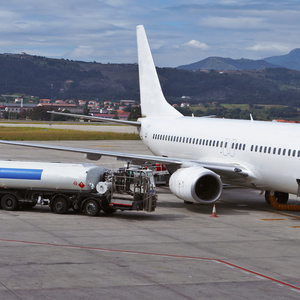SAF leaders urge Treasury to adopt GREET model for SAF tax credit

November 28, 2023
BY Renewable Fuels Association
As President Biden kicks off a series of events focused on rural investment, 70 industry leaders covering nearly the entire supply chain for sustainable aviation fuel (SAF) – including major airlines – called on the Biden Administration to unleash progress in de-carbonizing aviation by recognizing the U.S. Department of Energy’s Argonne GREET model under Section 40B(e) of the Inflation Reduction Act.
In an open letter to Treasury Secretary Janet Yellen, the authors explain that “our ability to attract investment and build out U.S. SAF capacity will depend on how the program determines credit eligibility and valuation.” The default model for evaluating SAF misses key aspects of de-carbonization, including “climate smart and regenerative feedstock practices” supported by the IRA.
Advertisement
Advertisement
Fortunately, the IRA explicitly allows for the use of “any similar methodology” for determining SAF credit eligibility and valuation. As the letter explains, the Argonne GREET model “incorporates the latest biorefining and feedstock production efficiencies.” It accounts for “every aspect of the ‘full fuel lifecycle’” — from “land use changes” to “all stages of fuel and feedstock production and distribution.” Argonne GREET clearly meets statutory requirements, and unlike any new approach that would invite further delay, it is well-settled, durable, and updated regularly.
The authors note: “With the right market signals, we can de-carbonize aviation and spur a new wave of U.S. innovation and clean energy jobs. However, modeling uncertainty today is a multiyear development problem due to the buildout schedules of SAF production facilities.” Section 40B of the IRA cannot be implemented or used effectively if bio-innovators do not urgently receive clarity and certainty on this issue.
Advertisement
Advertisement
The administration should immediately recognize Argonne GREET and provide the certainty that will support long-term planning and investment in a more sustainable future for aviation.
The full letter and list of signatories is available here.
Related Stories
The USDA has announced it will delay opening the first quarterly grant application window for FY 2026 REAP funding. The agency cited both an application backlog and the need to disincentivize solar projects as reasons for the delay.
Neste and DHL Express have strengthened their collaboration with the supply of 7,400 tons (9.5 million liters) of neat, i.e. unblended, Neste MY Sustainable Aviation Fuel to DHL Express at Singapore Changi Airport starting July 2025.
CoBank’s latest quarterly research report, released July 10, highlights current uncertainty around the implementation of three biofuel policies, RFS RVOs, small refinery exemptions (SREs) and the 45Z clean fuels production tax credit.
The U.S. Energy Information Administration maintained its forecast for 2025 and 2026 biodiesel, renewable diesel and sustainable aviation fuel (SAF) production in its latest Short-Term Energy Outlook, released July 8.
XCF Global Inc. on July 10 shared its strategic plan to invest close to $1 billion in developing a network of SAF production facilities, expanding its U.S. footprint, and advancing its international growth strategy.
Upcoming Events










